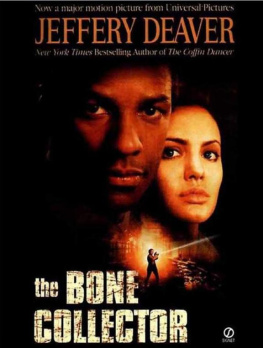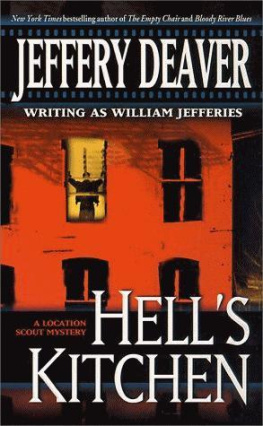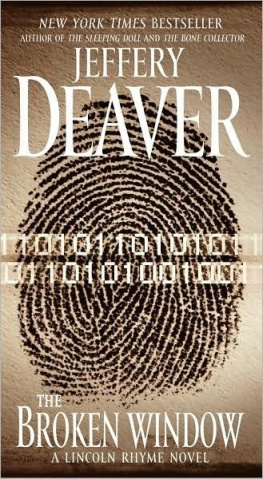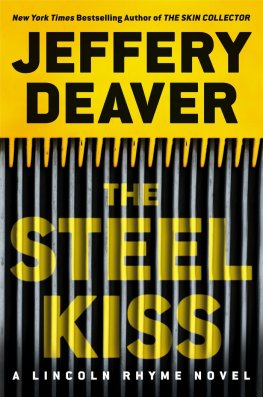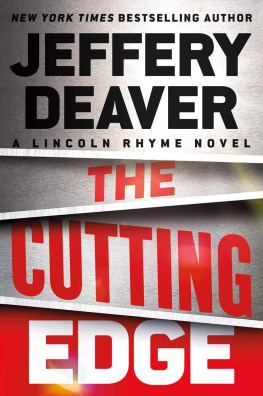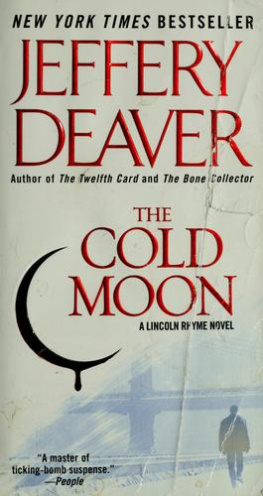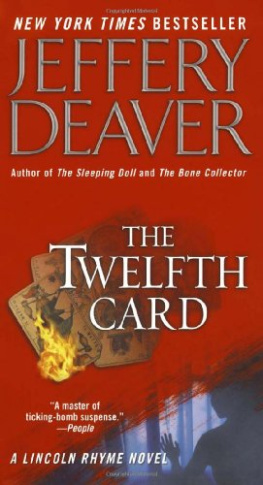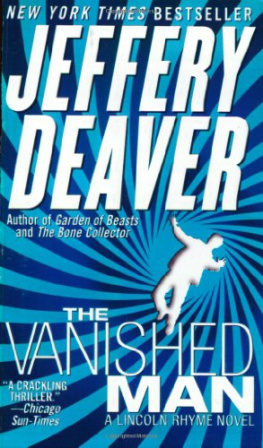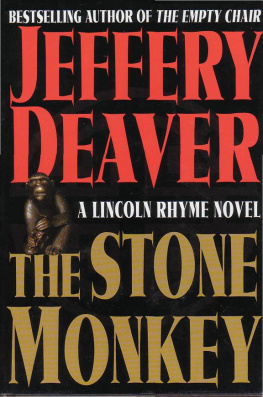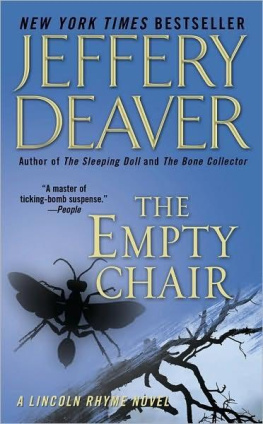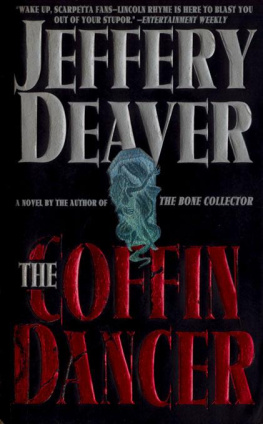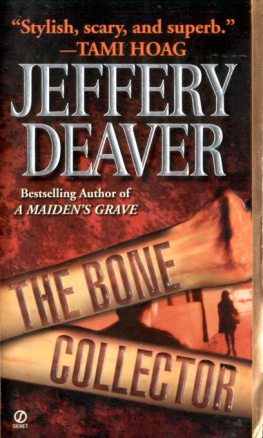Jeffery Deaver - The Stone Monkey
Here you can read online Jeffery Deaver - The Stone Monkey full text of the book (entire story) in english for free. Download pdf and epub, get meaning, cover and reviews about this ebook. genre: Detective and thriller. Description of the work, (preface) as well as reviews are available. Best literature library LitArk.com created for fans of good reading and offers a wide selection of genres:
Romance novel
Science fiction
Adventure
Detective
Science
History
Home and family
Prose
Art
Politics
Computer
Non-fiction
Religion
Business
Children
Humor
Choose a favorite category and find really read worthwhile books. Enjoy immersion in the world of imagination, feel the emotions of the characters or learn something new for yourself, make an fascinating discovery.

- Book:The Stone Monkey
- Author:
- Genre:
- Rating:4 / 5
- Favourites:Add to favourites
- Your mark:
- 80
- 1
- 2
- 3
- 4
- 5
The Stone Monkey: summary, description and annotation
We offer to read an annotation, description, summary or preface (depends on what the author of the book "The Stone Monkey" wrote himself). If you haven't found the necessary information about the book — write in the comments, we will try to find it.
The Stone Monkey — read online for free the complete book (whole text) full work
Below is the text of the book, divided by pages. System saving the place of the last page read, allows you to conveniently read the book "The Stone Monkey" online for free, without having to search again every time where you left off. Put a bookmark, and you can go to the page where you finished reading at any time.
Font size:
Interval:
Bookmark:

Jeffery Deaver
The Stone Monkey
The fourth book in the Lincoln Rhyme series, 2002
To those we lost on September 11, 2001 whose only crime was their love of tolerance and freedom and who will be in our hearts forever.
Author's Note
I'm including here some information that might be helpful for readers unfamiliar with certain aspects of Chinese life that are described in the book.
Geography Most of the illegal immigrants to the United States from China come from the southeastern coastal region of that country, generally from two provinces: in the far south, Guangdong Province, where Hong Kong is located, and just north of that, Fujian Province, whose major city is Fuzhou, a large seafaring center and probably the most popular point of embarkation for illegal immigrants beginning their journeys to other lands.
Language The written Chinese language is the same throughout the country but as spoken there are great differences from one region to the other. The major dialects are Cantonese in the south, Minnanhua in Fujian and Taiwan, and Mandarin, or Putonghua, in Beijing and the north. The few Chinese words I use in the book are in the Putonghua dialect, which is the official language of the country.
Names Chinese names are traditionally given in the reverse order from that used in the United States and Europe. For example, with Li Kangmei, Li is the family name and Kangmei is the given name. Some Chinese in the more urbanized regions of China or with close ties to the United States or other Western cultures may adopt a Western given name, which they use in addition to or instead of a Chinese given name. In such a case the Anglicized name precedes the family name, such as Jerry Tang.
J.D.
I . The Snakehead
Tuesday, the Hour of the Tiger, 4:30 A.M.,
to the Hour of the Dragon, 8 a.m.
The word Wei-Chi consists of two Chinese words Wei, which means to "encircle," and Chi, which means "piece." As the game represents a struggle for life, it may be called the "war game."
Danielle Pecorini and Tong Shu, The Game of Wei-Chi
Chapter One
They were the vanished, they were the unfortunate.
To the human smugglers the snakeheads who carted them around the world like pallets of damaged goods; they were ju-jia, piglets.
To the American INS agents who interdicted their ships and arrested and deported them they were undocumenteds.
They were the hopeful. Who were trading homes and family and a thousand years of ancestry for the hard certainty of risky, laborious years ahead of them.
Who had the slimmest of chances to take root in a place where their families could prosper, where freedom and money and contentment were, the story went, as common as sunlight and rain.
They were his fragile cargo.
And now, legs steady against the raging, five-meter-high seas, Captain Sen Zi-jun made his way from the bridge down two decks into the murky hold to deliver the grim message that their weeks of difficult journeying might have been in vain.
It was just before dawn on a Tuesday in August. The stocky captain, whose head was shaved and who sported an elaborate bushy mustache, slipped past the empty containers lashed to the deck of the seventy-two-meter Fuzhou Dragon as camouflage and opened the heavy steel door to the hold. He looked down at the two-dozen people huddled there, in the grim, windowless space. Trash and children's plastic blocks floated in the shallow tide under the cheap cots.
Despite the pitching waves, Captain Sen a thirty-year veteran of the seas walked down the steep metal steps without using the handrails and strode into the middle of the hold. He checked the carbon dioxide meter and found the levels acceptable though the air was vile with the smell of diesel fuel and humans who'd lived for two weeks in close proximity.
Unlike many of the captains and crew who operated "buckets" human smuggling ships and who at best ignored or sometimes even beat or raped the passengers, Sen didn't mistreat them. Indeed he believed that he was doing a good thing: transporting these families from difficulty to, if not certain wealth, at least the hope of a happy life in America, Meiguo in Chinese, which means the "Beautiful Country."
On this particular voyage, however, most of the immigrants distrusted him. And why not? They assumed he was in league with the snakehead who'd chartered the Dragon: Kwan Ang, known universally by his nickname, Gui, the Ghost. Tainted by the snakehead's reputation for violence, Captain Sen's efforts to engage the immigrants in conversation had been rebuffed and had yielded only one friend. Chang Jingerzi who preferred his Western name of Sam Chang was a forty-five-year-old former college professor from a suburb of the huge port city of Fuzhou in southeastern China. He was bringing his entire family to America: his wife, two sons and Changs widower father.
A half-dozen times on the trip Chang and Sen had sat in the hold, sipped the potent mao-tai that the captain always had in good supply on his ship and talked about life in China and in the United States.
Captain Sen now saw Chang sitting on a cot in a forward corner of the hold. The tall, placid man frowned, a reaction to the look in the captain's eyes. Chang handed his teenage son the book he'd been reading to his family and rose to meet the captain.
Everyone around them fell silent.
"Our radar shows a fast-moving ship on course to intercept us."
Dismay blossomed in the faces of those who'd overheard.
"The Americans?" Chang asked. "Their Coast Guard?"
"I think it must be," the captain answered. "We're in U.S. waters."
Sen looked at the frightened faces of the immigrants around him. Like most shiploads of illegals that Sen had transported, these people many of them strangers before they'd met had formed a close bond of friendship. And they now gripped hands or whispered among themselves, some seeking, some offering reassurance. The captain's eyes settled on a woman holding an eighteen-month-old girl in her arms. Her mother whose face was scarred from a beating at a reeducation camp lowered her head and began to cry.
"What can we do?" Chang asked, troubled.
Captain Sen knew he was a vocal dissident in China and had been desperate to flee the country. If he was deported by U.S. Immigration he'd probably end up in one of the infamous jails in western China as a political prisoner.
"We're not far from the drop-off spot. We're running at full speed. It may be possible to get close enough to put you ashore in rafts."
"No, no," Chang said. "In these waves? We'd all die."
"There's a natural harbor I'm steering for. It should be calm enough for you to board the rafts. At the beach there'll be trucks to take you to New York."
"And what about you?" Chang asked.
"I'll head back into the storm. By the time it's safe for them to board you'll be on highways of gold, heading toward the city of diamonds Now tell everyone to get their belongings together. But only the most important things. Your money, your pictures. Leave everything else. It will be a race to the shore. Stay below until the Ghost or I tell you to come up top."
Captain Sen hurried up the steep ladder, on his way to the bridge. As he climbed he said a brief prayer for their survival to Tian Hou, the goddess of sailors, then dodged a wall of gray water that vaulted the side of the ship.
On the bridge he found the Ghost standing over the radar unit, staring into the rubber glare shade. The man stood completely still, bracing himself against the rolling of the sea.
Next pageFont size:
Interval:
Bookmark:
Similar books «The Stone Monkey»
Look at similar books to The Stone Monkey. We have selected literature similar in name and meaning in the hope of providing readers with more options to find new, interesting, not yet read works.
Discussion, reviews of the book The Stone Monkey and just readers' own opinions. Leave your comments, write what you think about the work, its meaning or the main characters. Specify what exactly you liked and what you didn't like, and why you think so.

